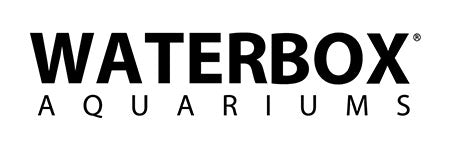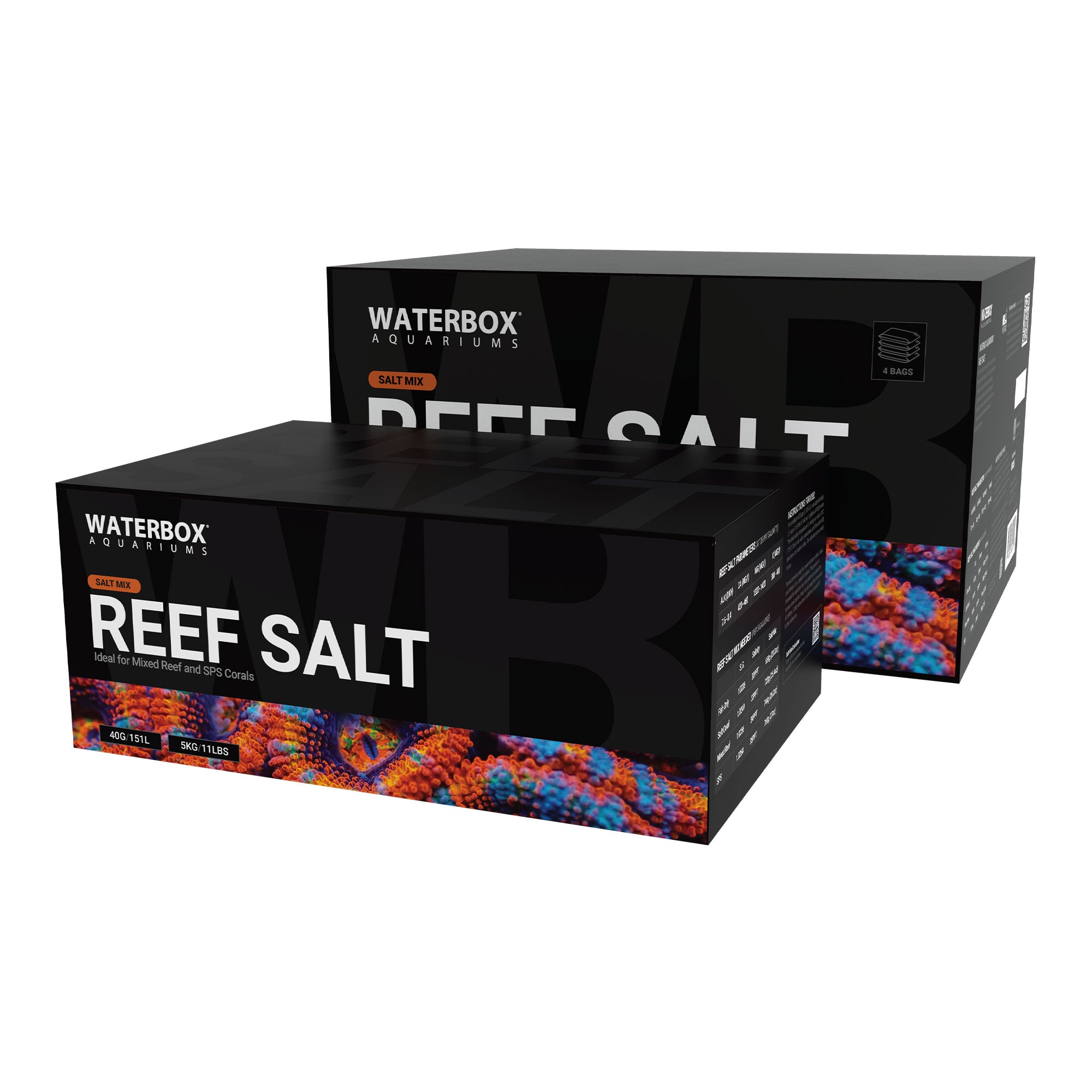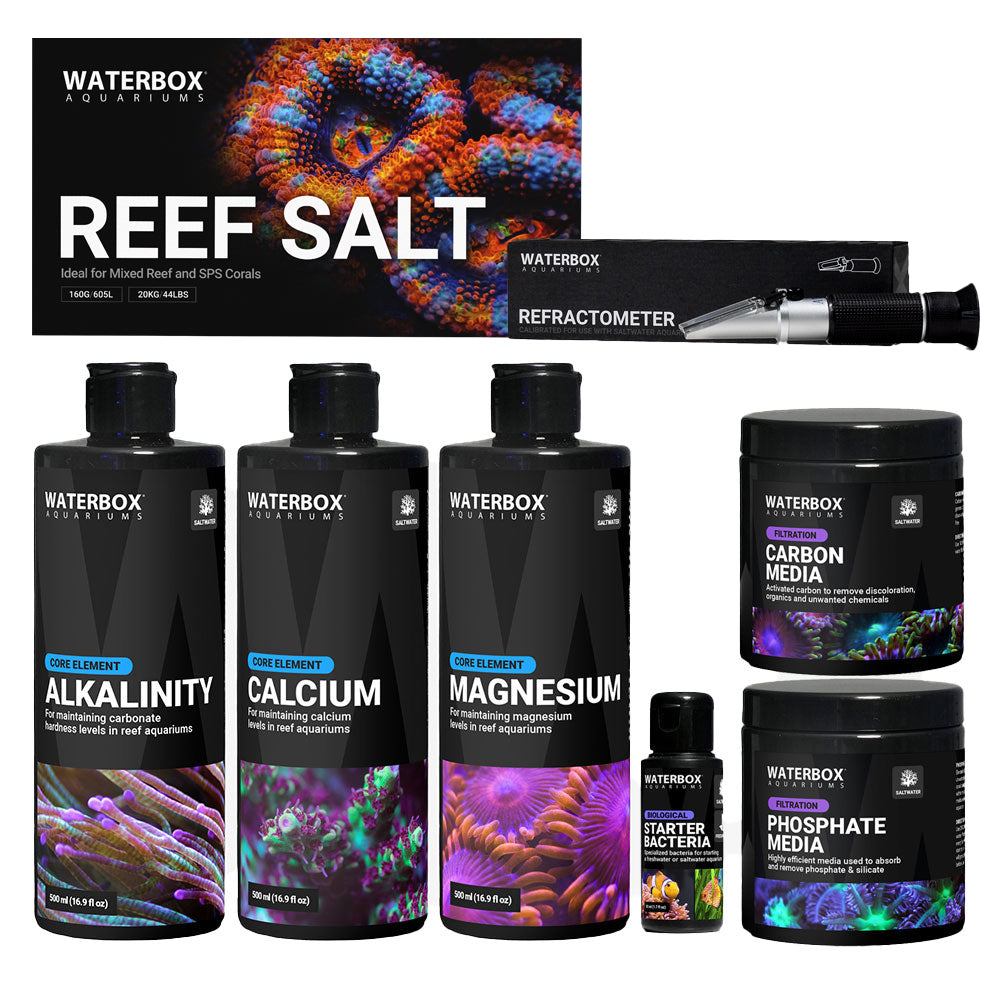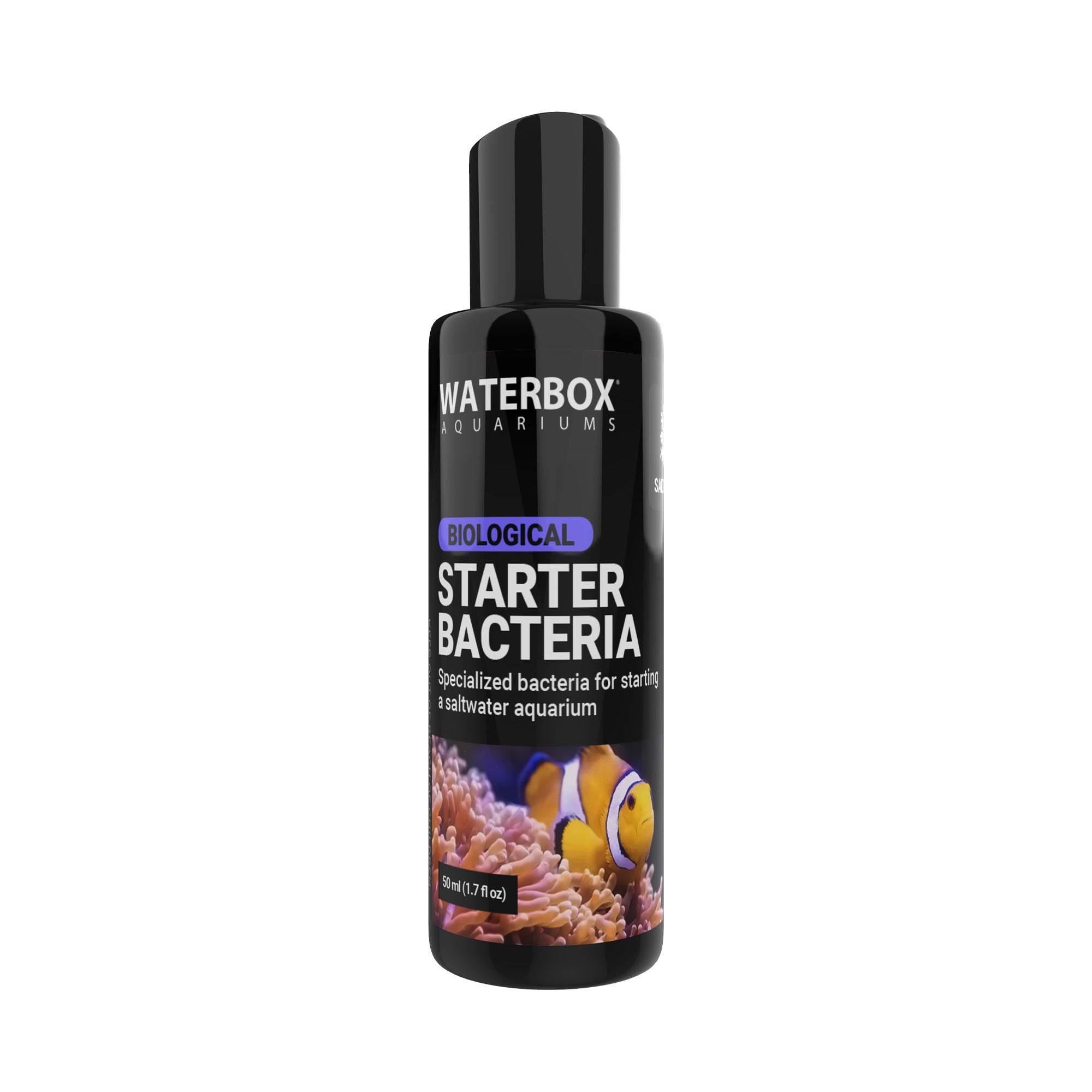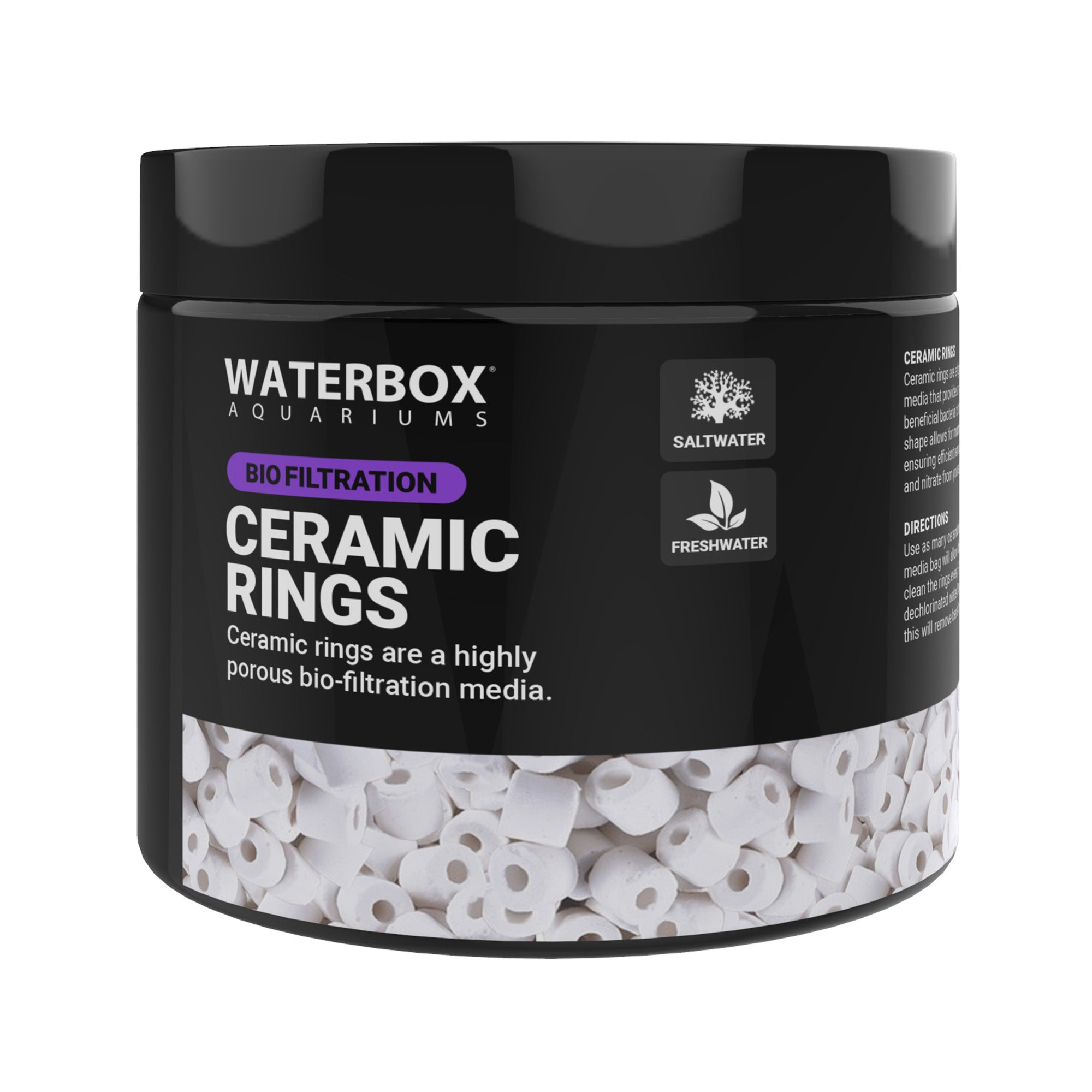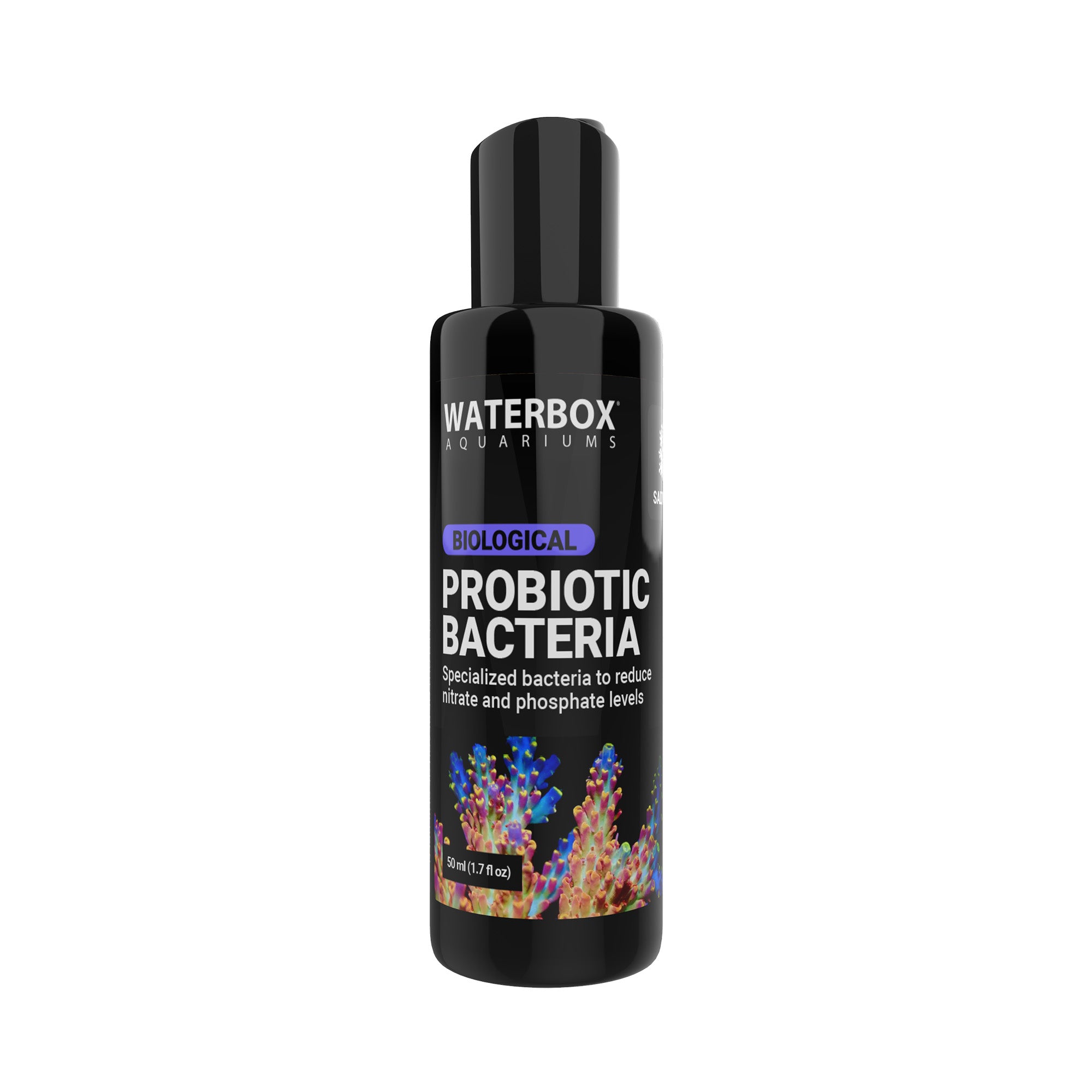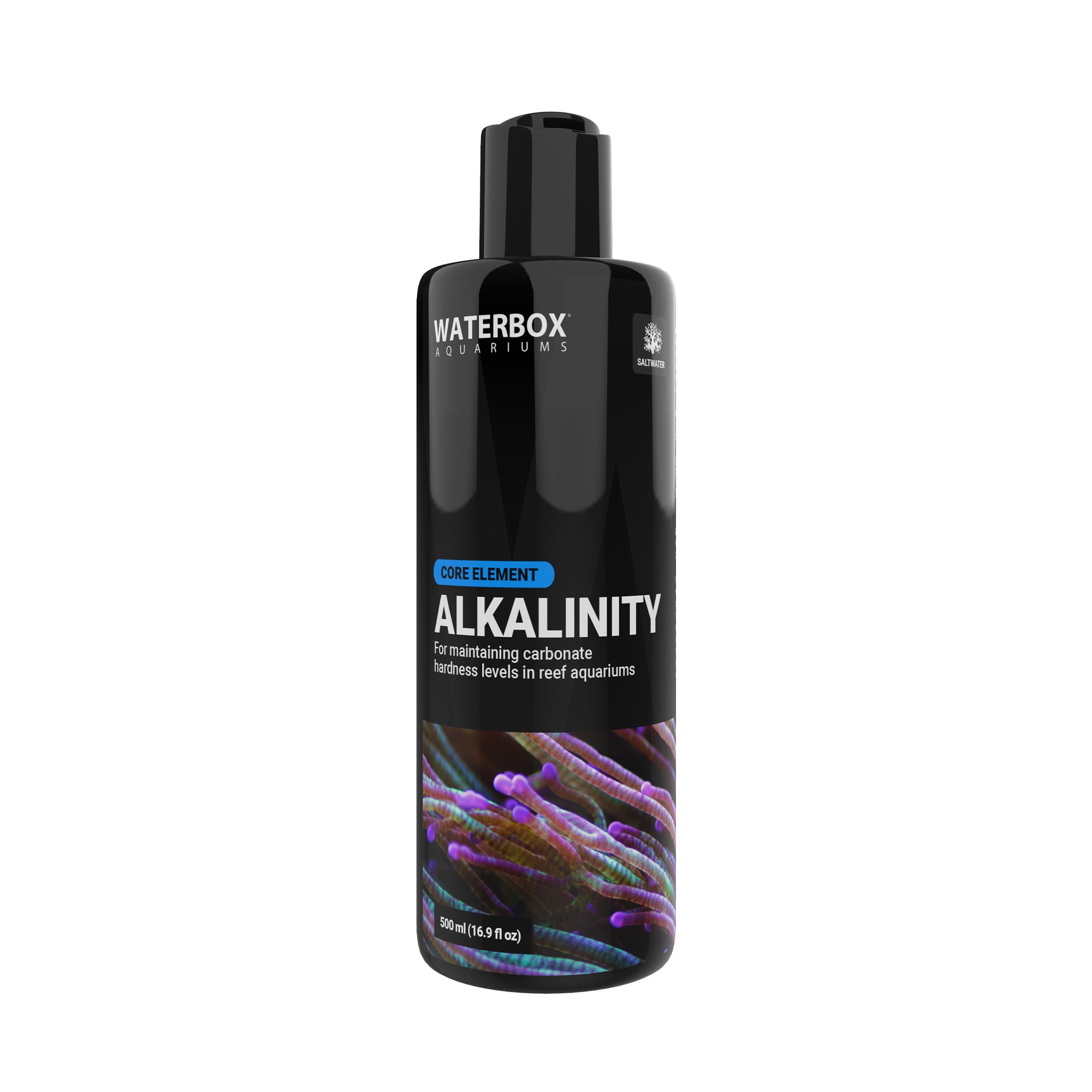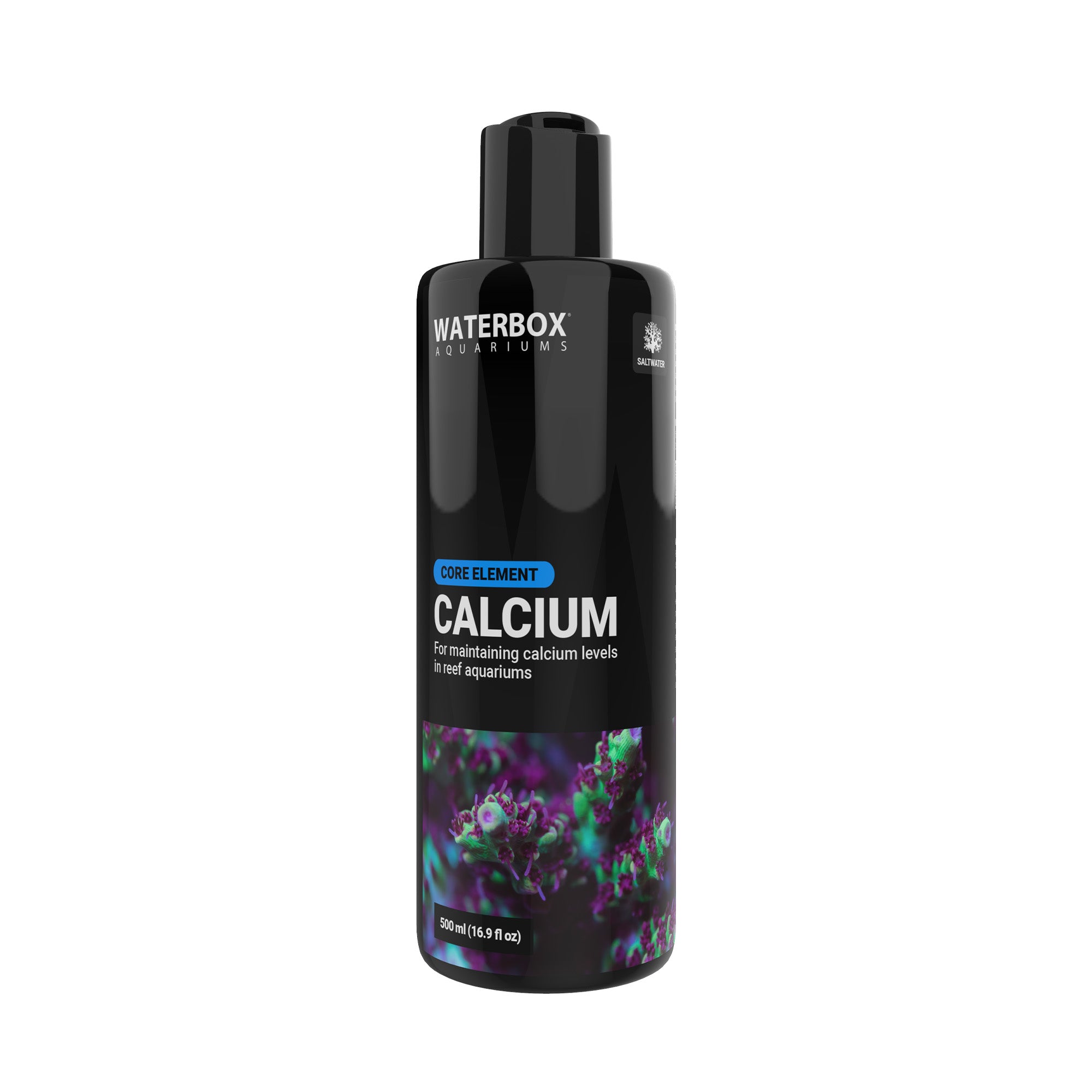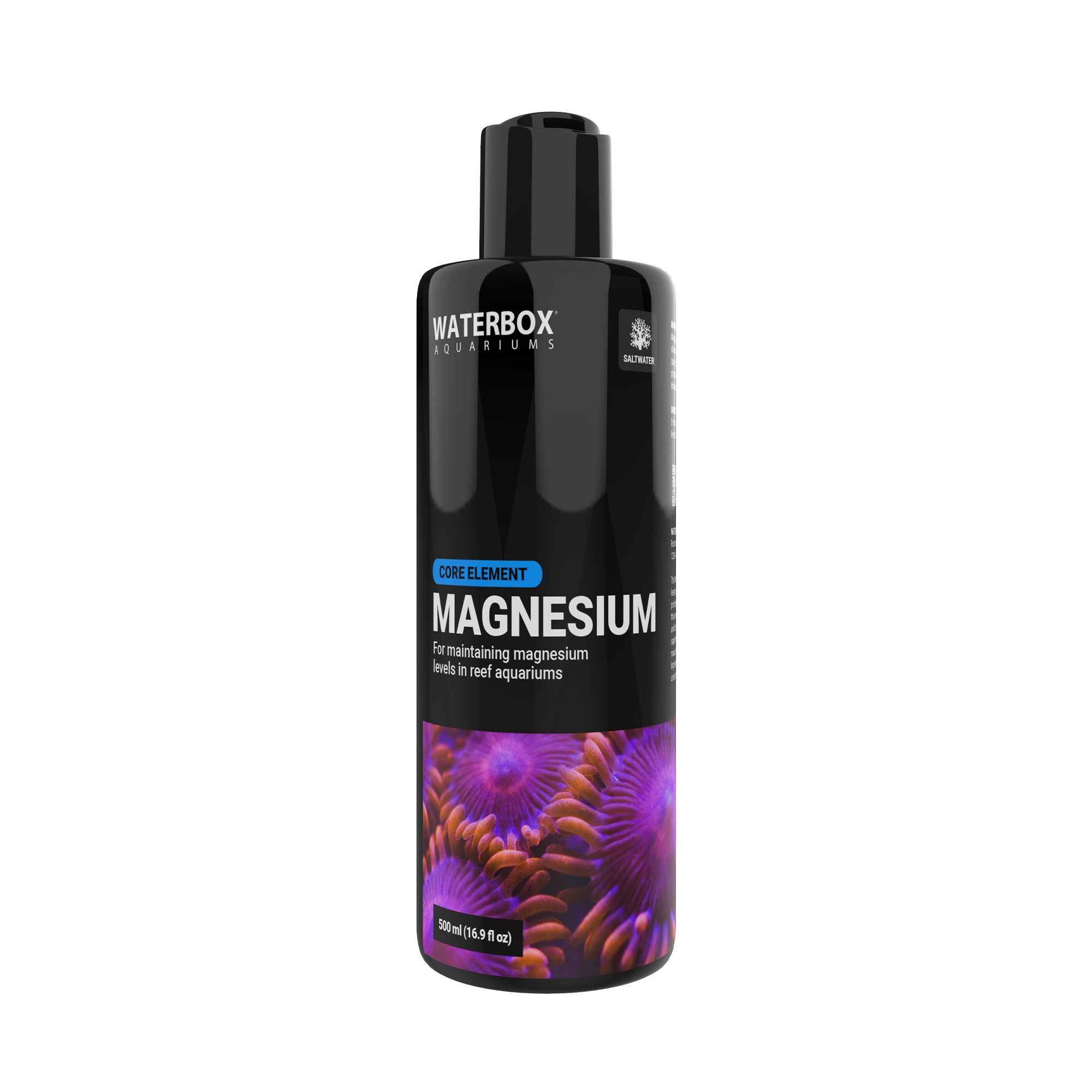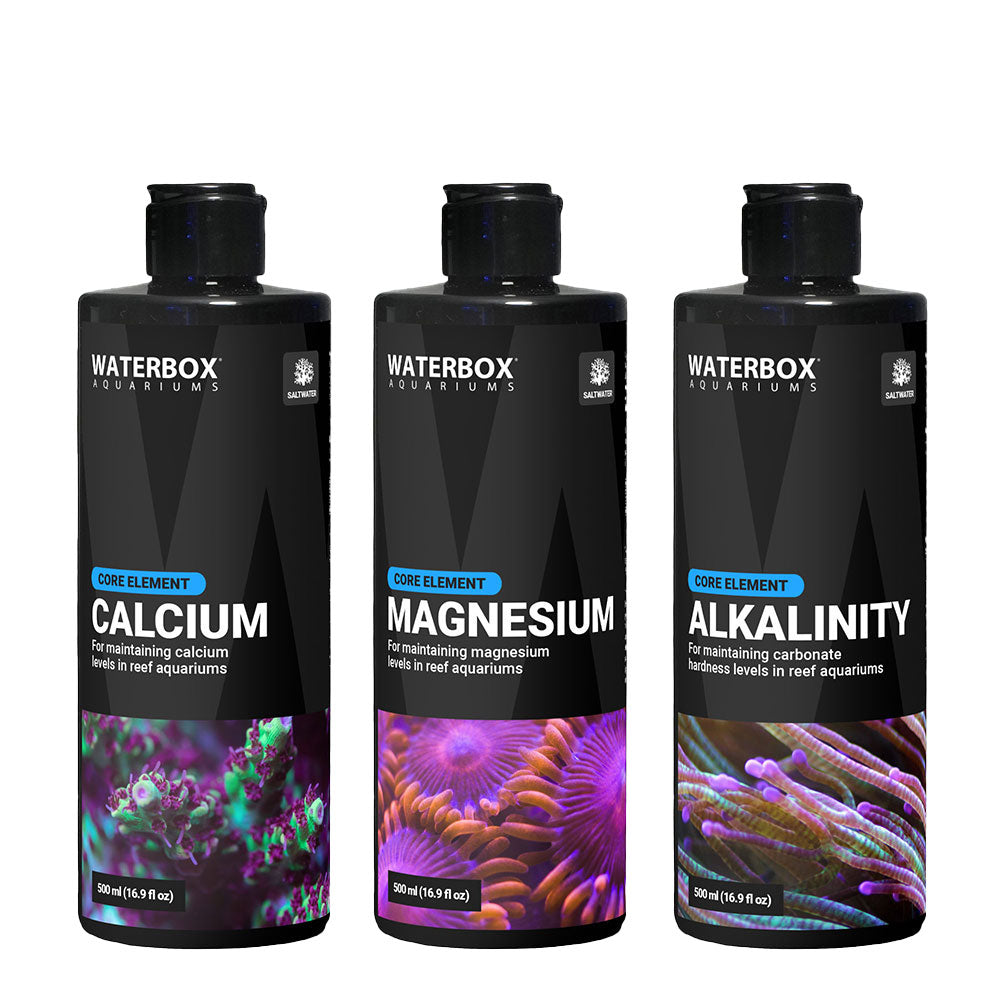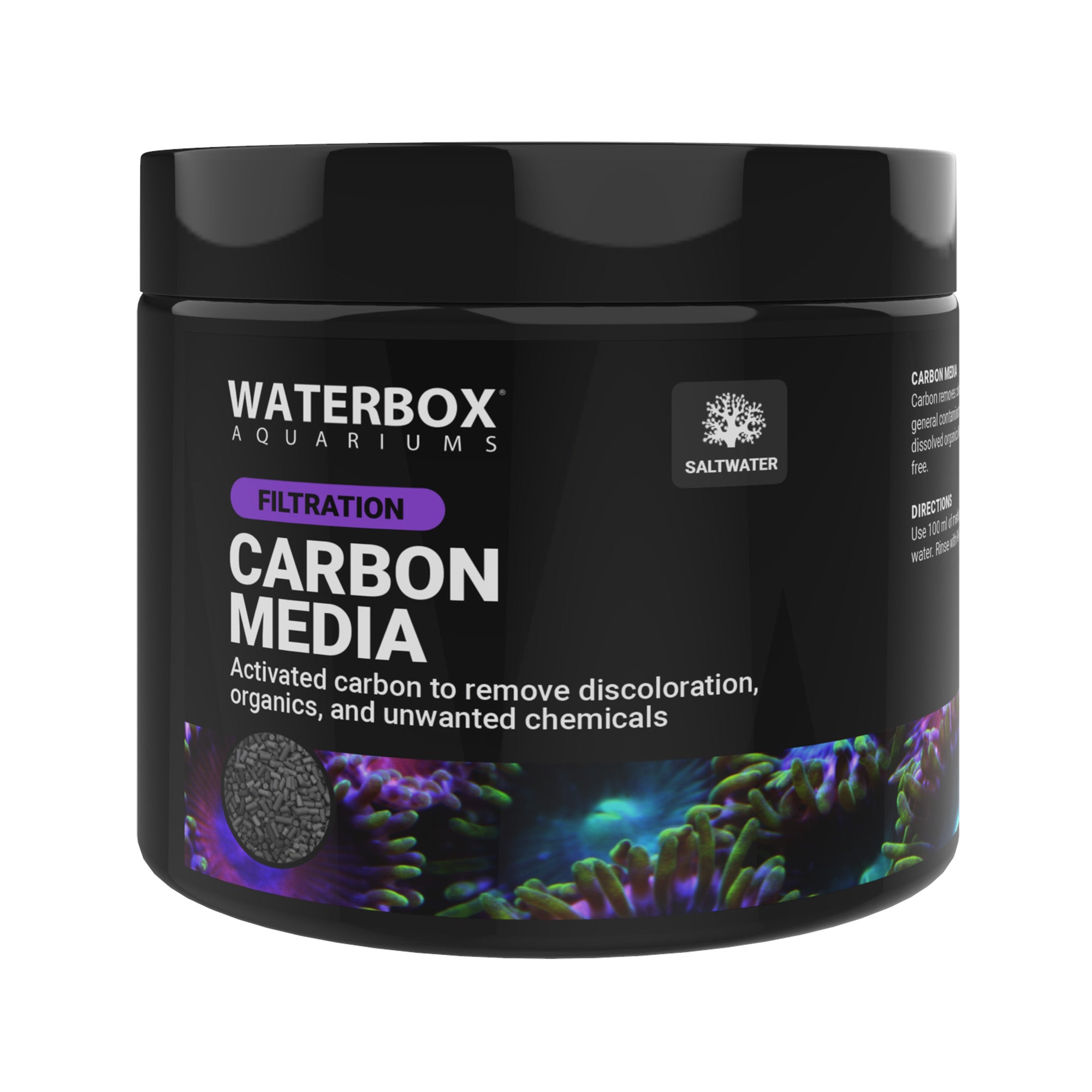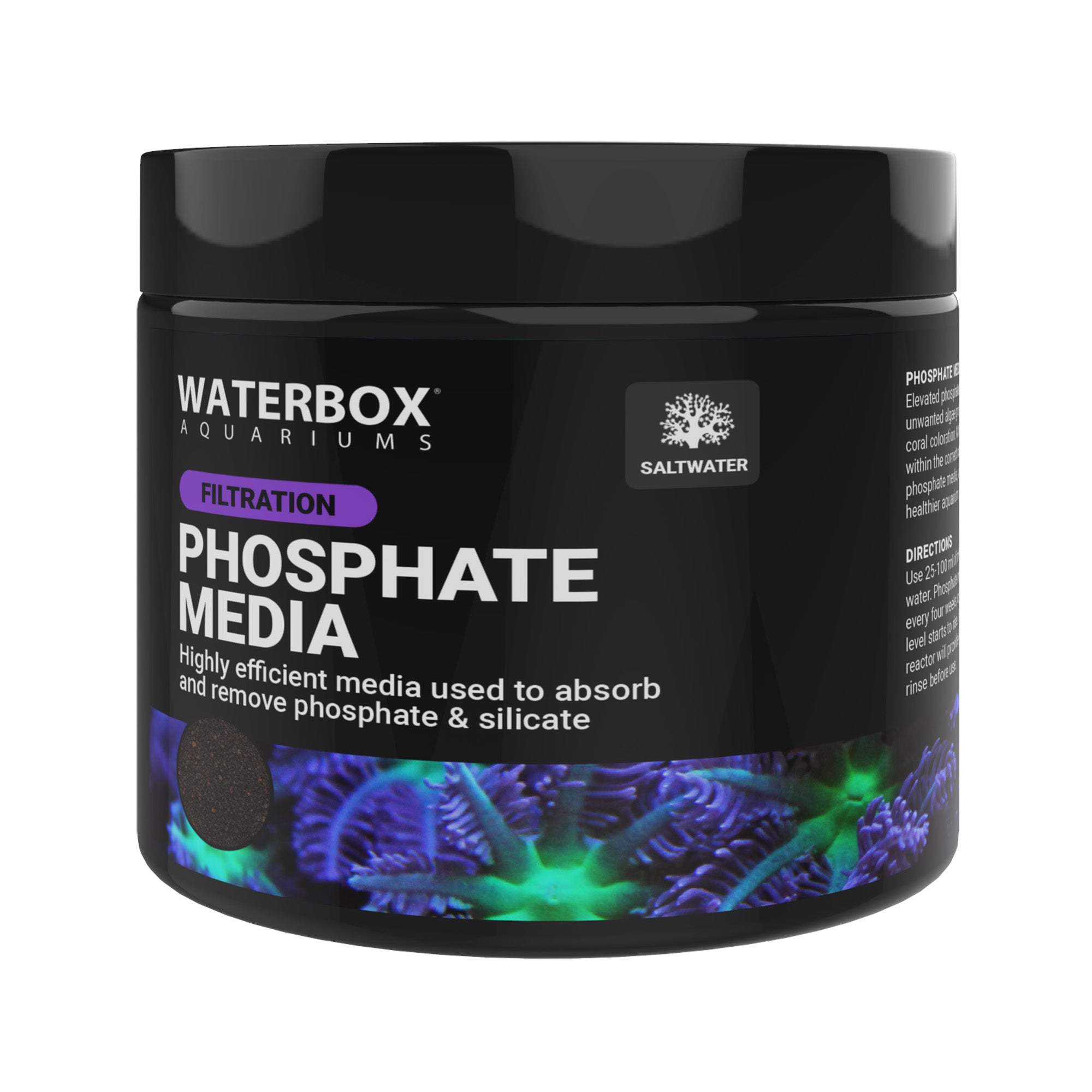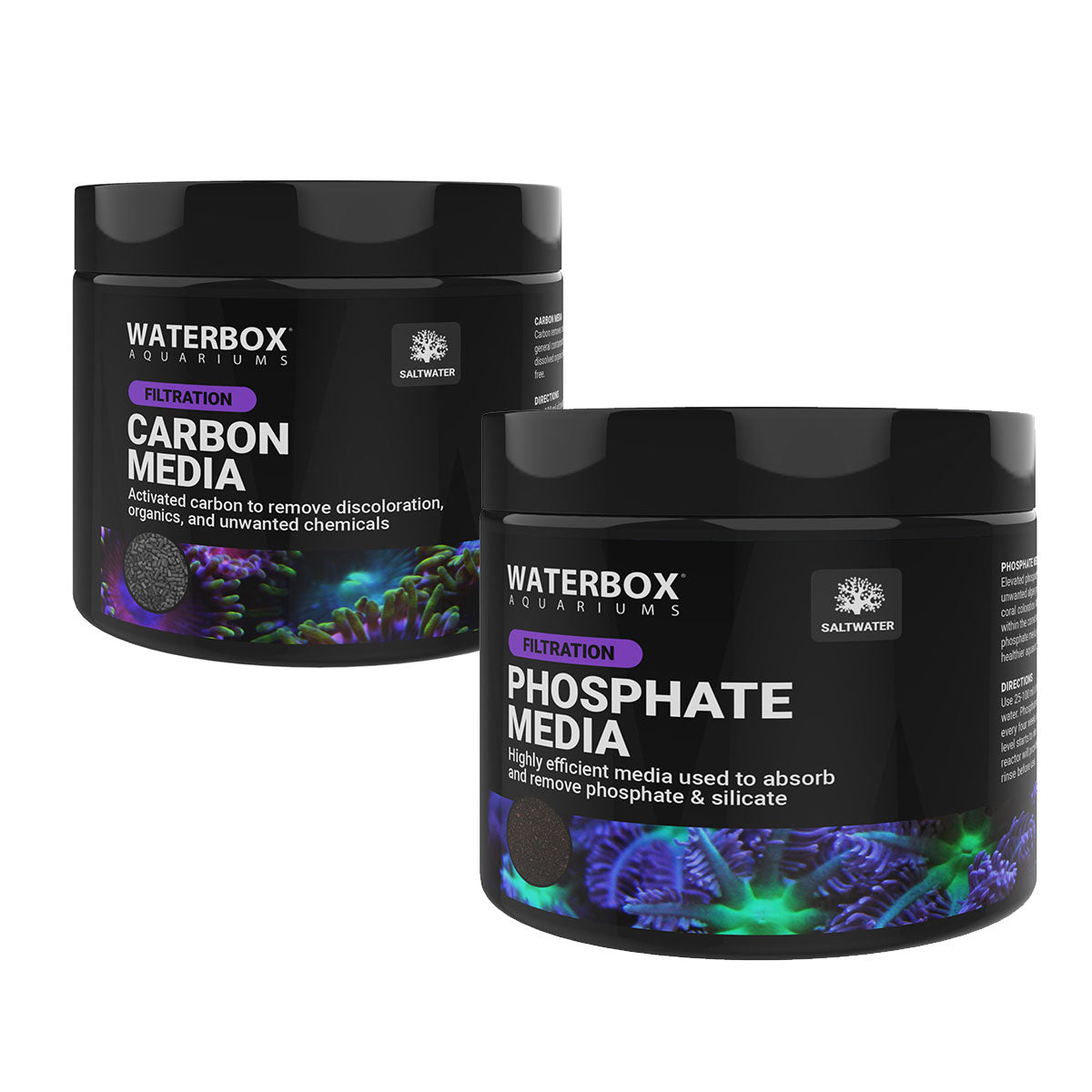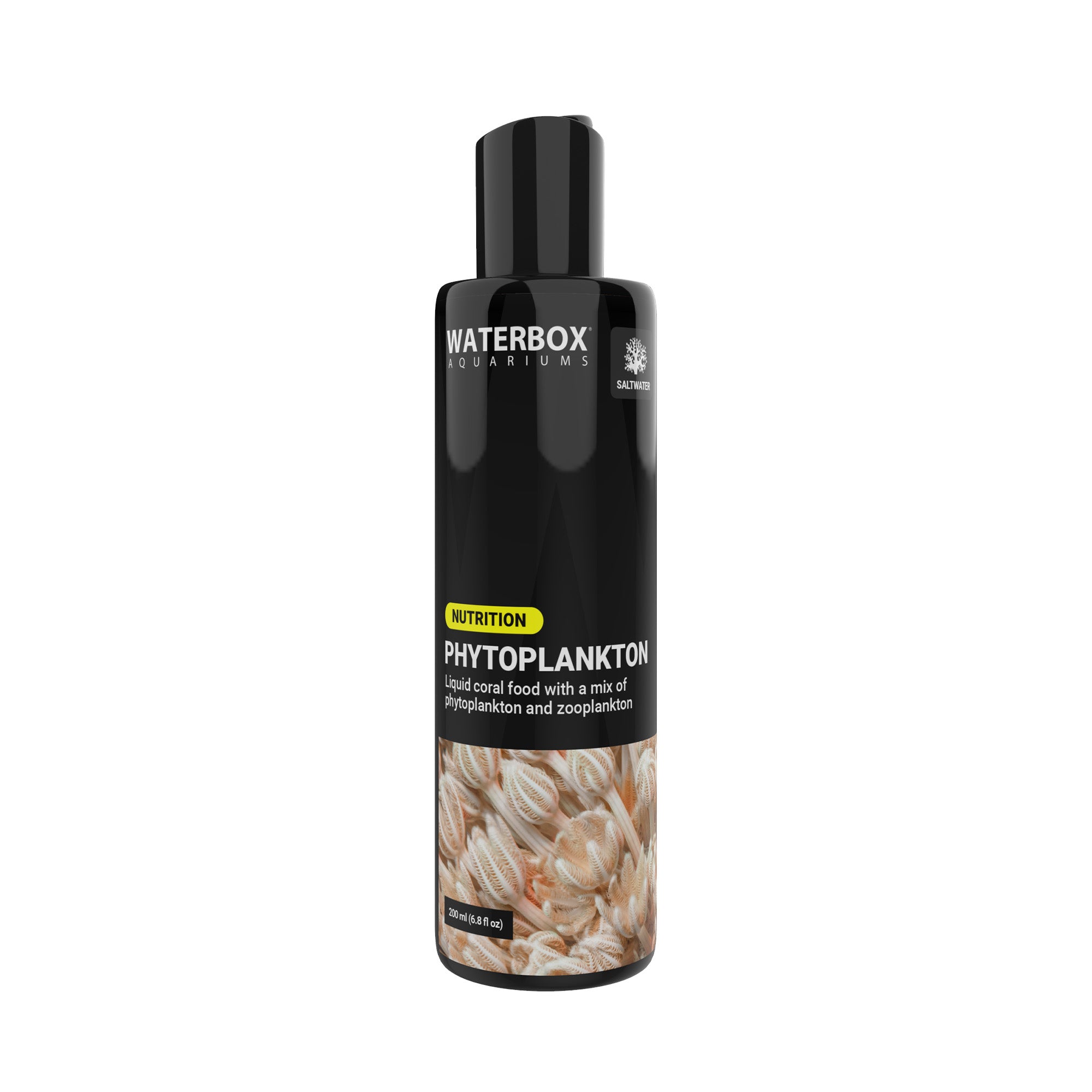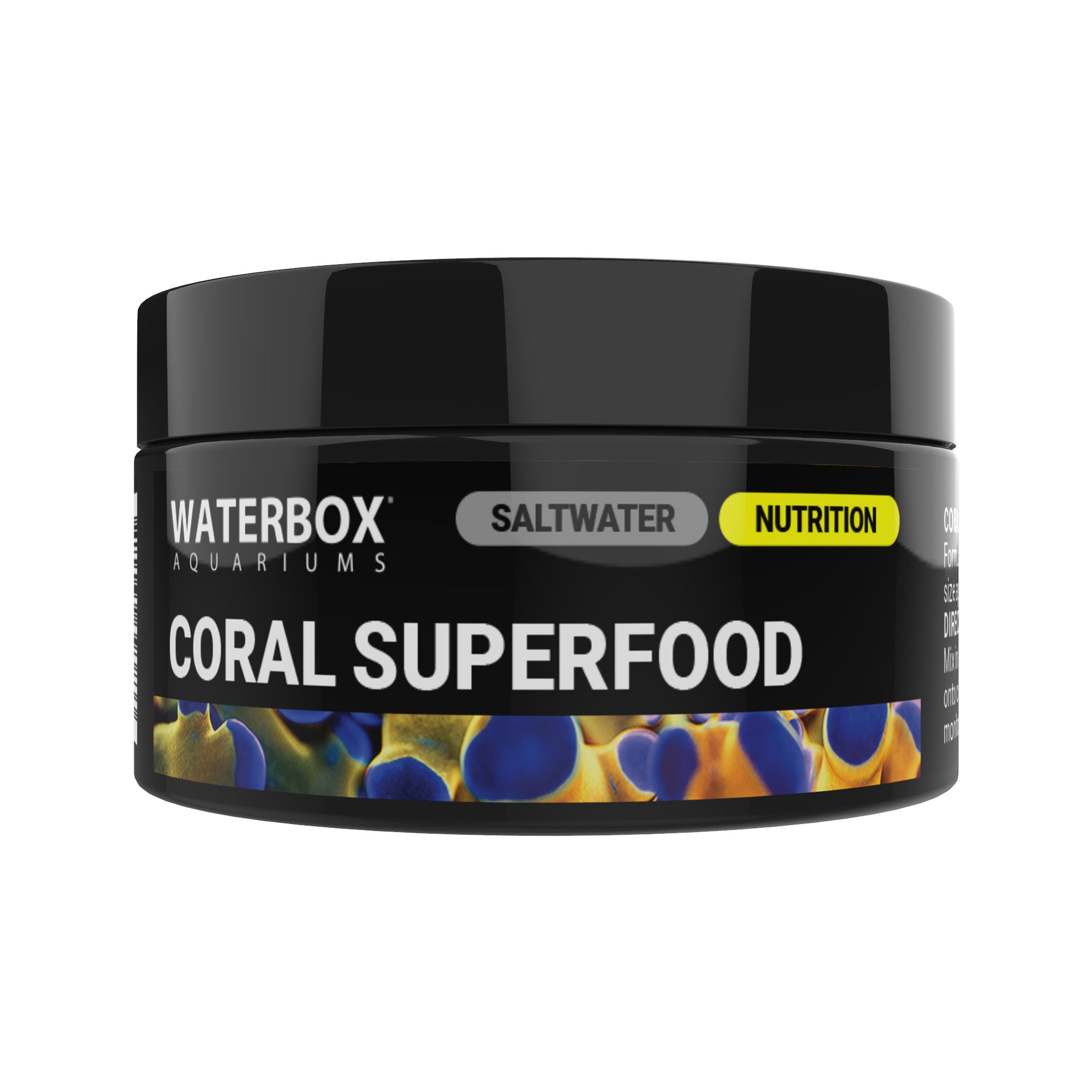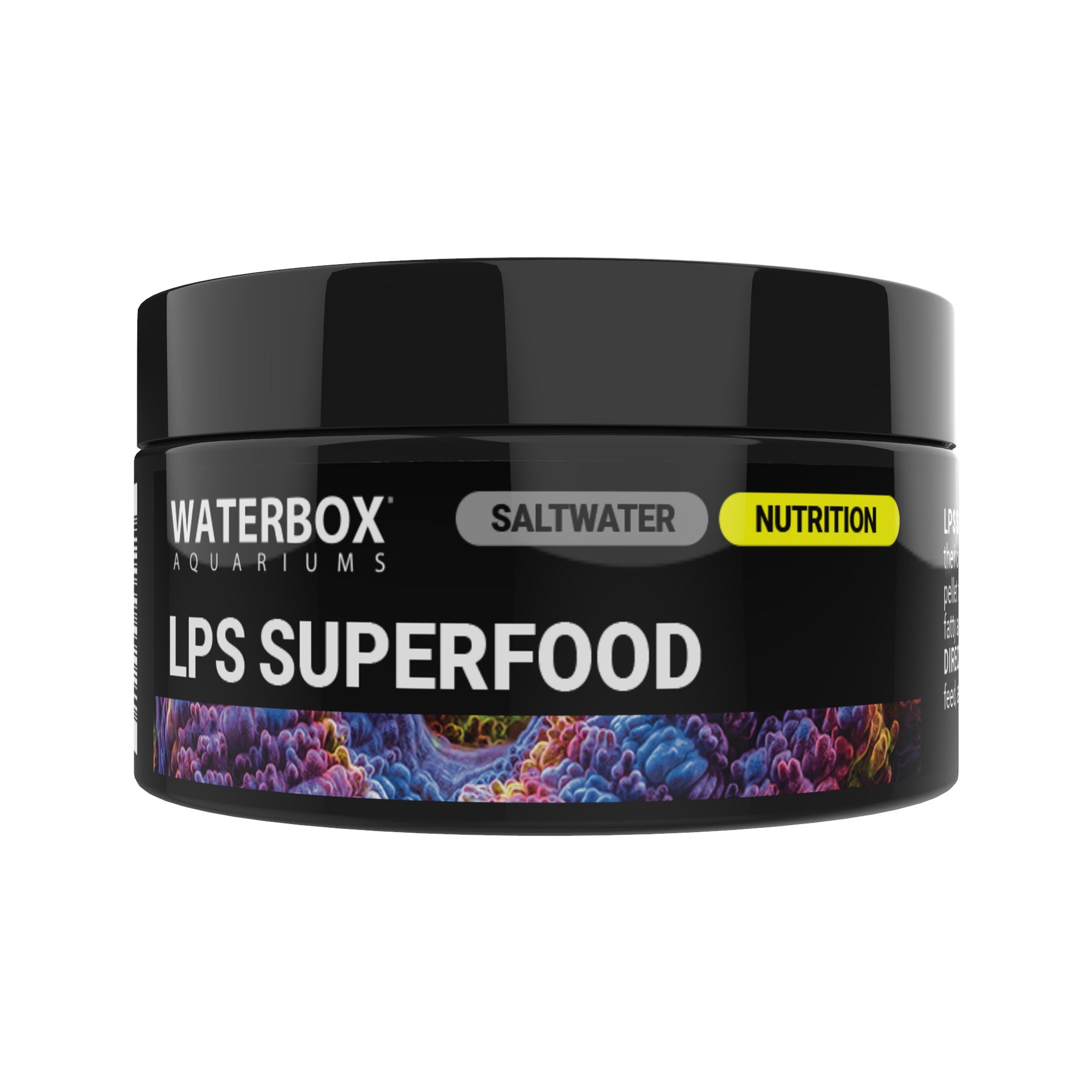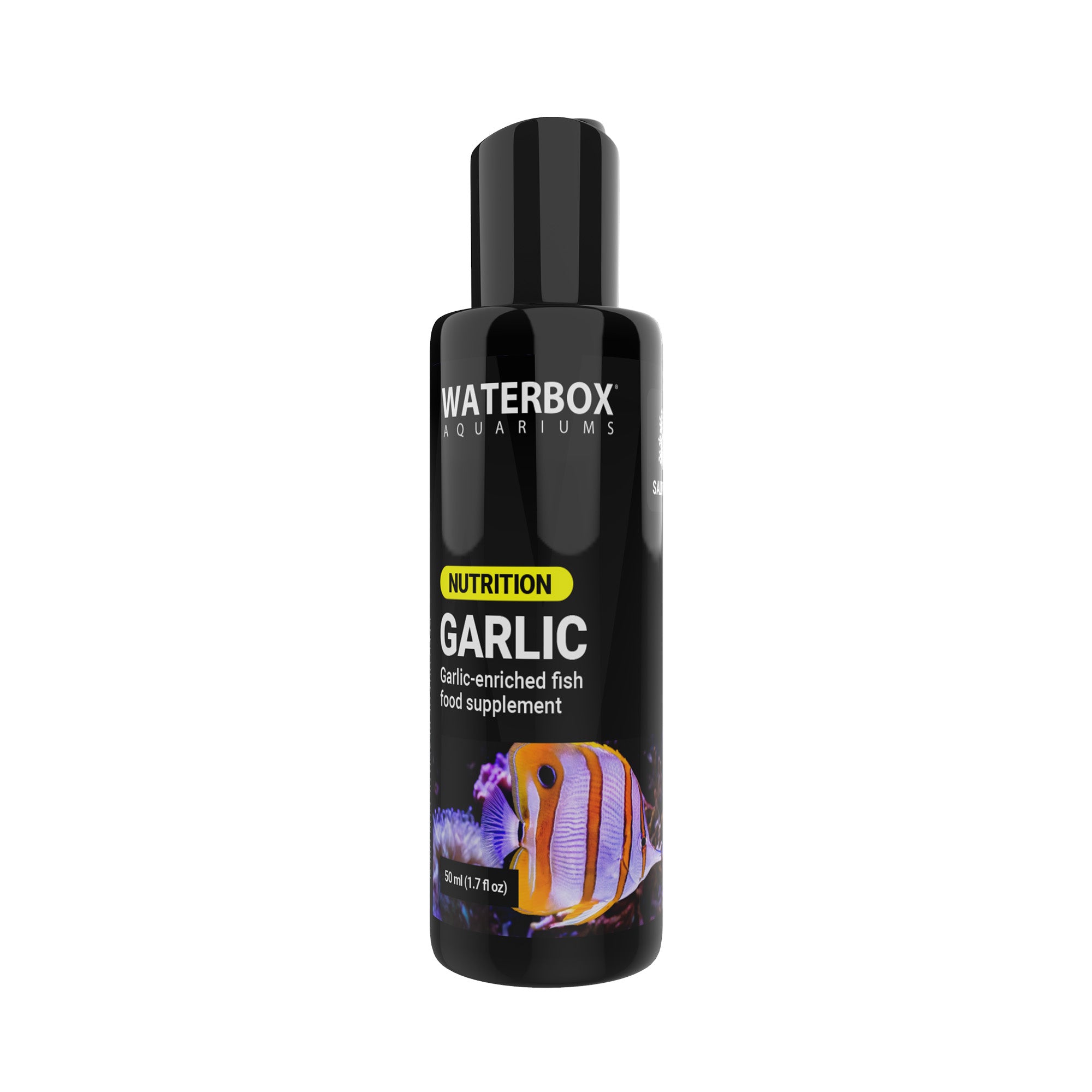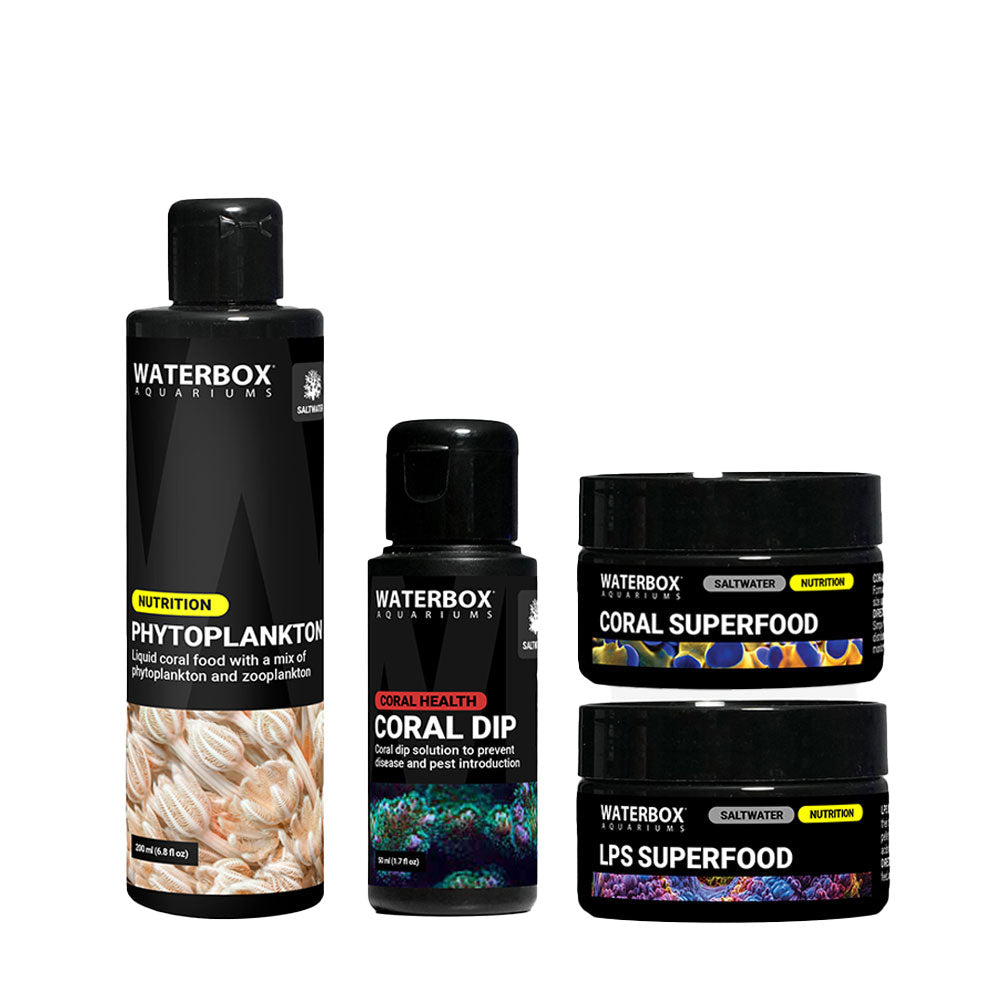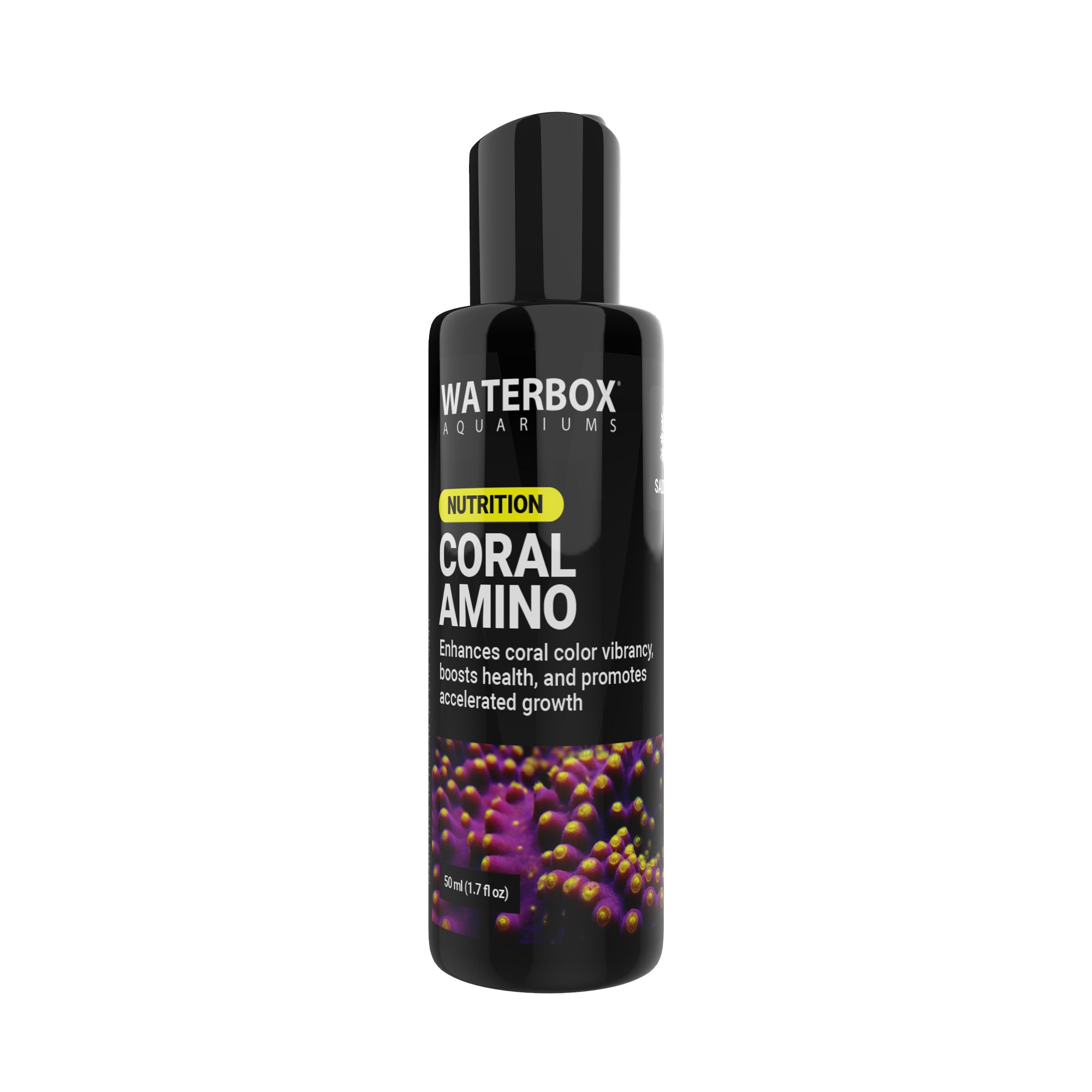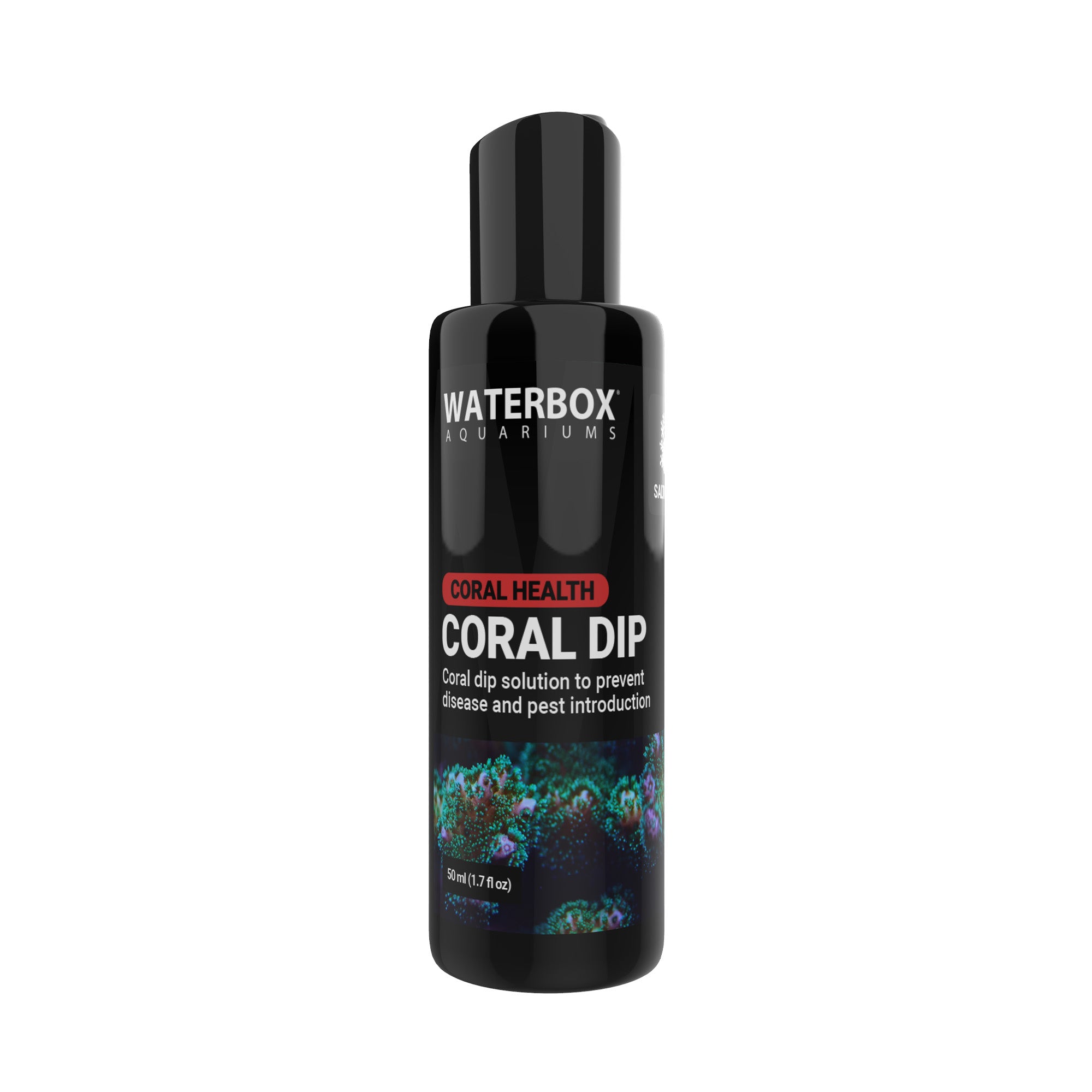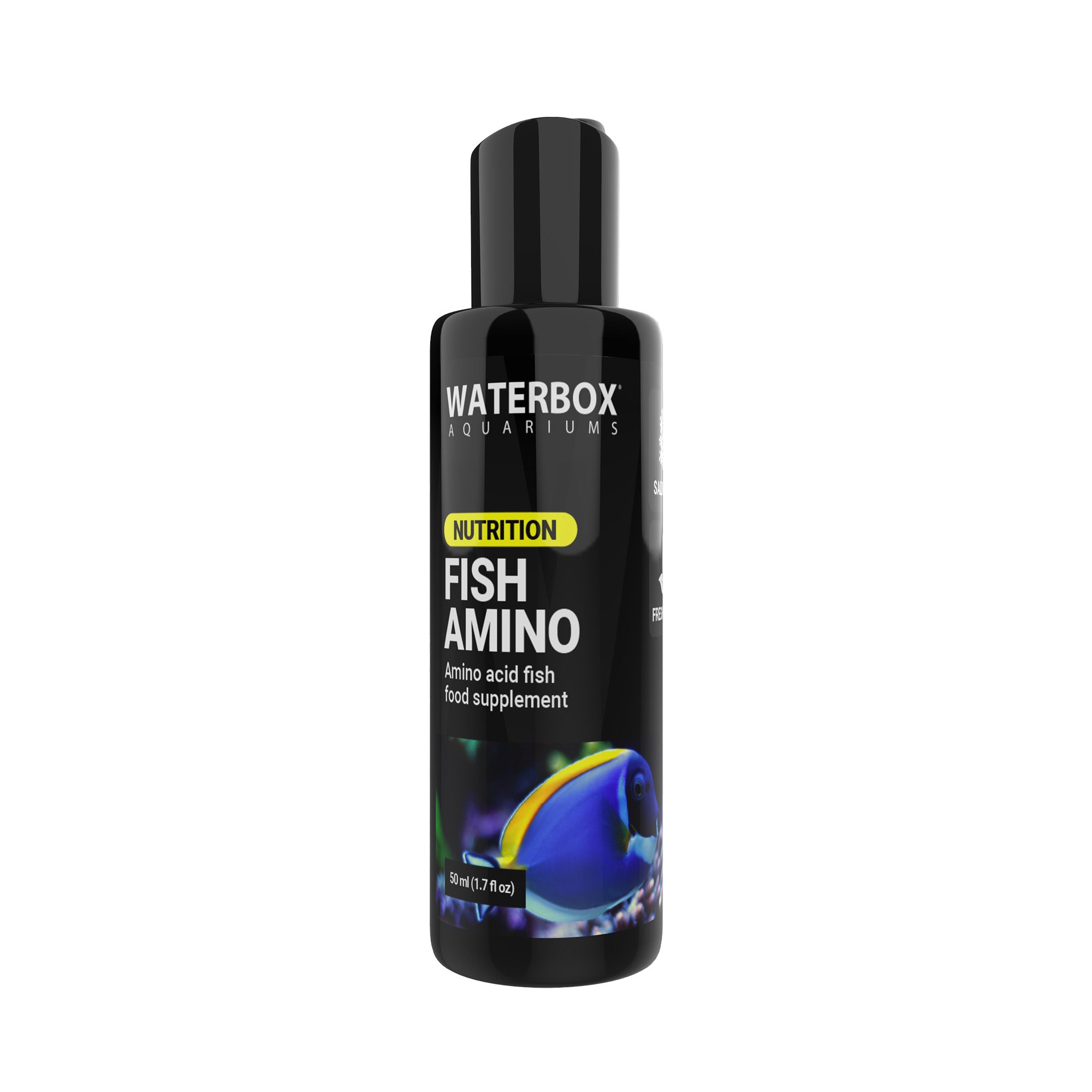Waterbox Method Saltwater SPS
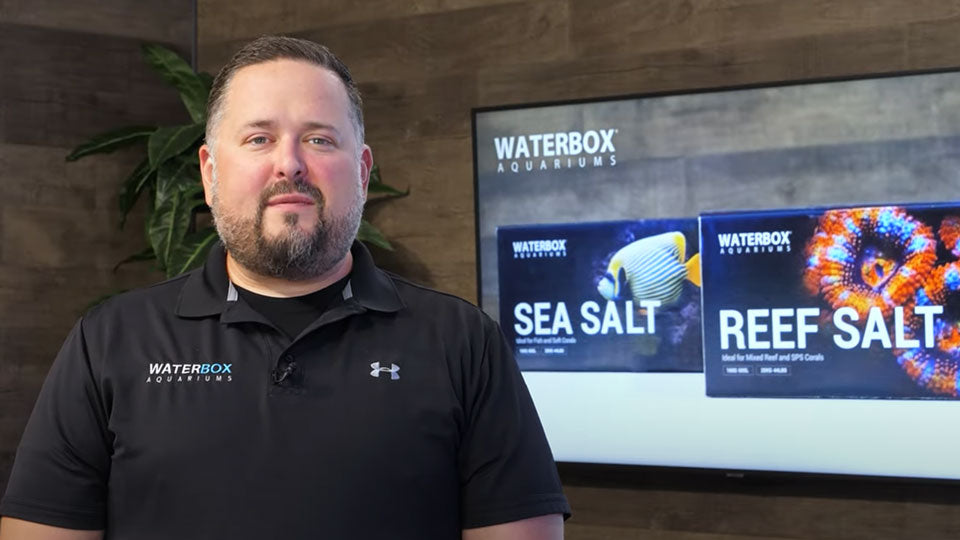
Step 1: Salt Mix
Salt mix is essential for marine and reef aquariums, as it replicates the chemical composition of natural seawater, providing crucial minerals and elements. Choosing a high-quality salt mix that matches your target aquarium parameters will enhance coral growth and color.
Waterbox Reef Salt: Formulated for the most discerning Reef Aquarium hobbyists, our REEF SALT is one of the fastest mixing, cleanest and most consistent salts in the industry. Each box contains optimal levels of minor and major trace elements to ensure beautiful coloration and growth of your corals.

Step 2: Biological
Establishing a healthy nitrogen cycle is important when starting or maintaining an aquarium.
New Aquariums
Starter Bacteria: Waterbox Aquariums Starter Bacteria adds beneficial bacteria needed to break down ammonia and nitrite in a freshwater or saltwater aquarium. These levels of bacteria are key in establishing a healthy nitrogen cycle and ensuring your aquarium is ready to add livestock.
Established Aquariums
Probiotic Bacteria: Probiotic Bacteria is a specialized blend of beneficial bacteria formulated to naturally reduce nitrate and phosphate levels in marine aquariums. By introducing targeted strains of probiotic microbes, this powerful supplement enhances biological filtration, breaks down organic waste, and promotes a balanced, low-nutrient environment.
Ceramic Rings: Ceramic rings are a highly porous bio-filtration media that provides an optimal habitat for beneficial bacteria to thrive. The unique ring shape allows for maximum water flow, ensuring efficient removal of ammonia, nitrite, and nitrate from your aquarium.

Step 3: Core Elements
Our Core Elements include the three essential additives every reef aquarium requires.
Calcium: Calcium is an essential building block for the skeletal structure of SPS and LPS coral, invertebrates and coralline algae in your aquarium.
Alkalinity: Alkalinity has two very important functions in a reef aquarium; maintaining pH levels and combining with calcium to support the growth of skeletal structures.
Magnesium: Magnesium is an often-overlooked additive in the reef aquarium but its role in keeping calcium and alkalinity levels stable is extremely important.
Core Elements Bundle CAL/ALK/MAG

Step 4: Filtration
Waterbox Aquariums filter media includes carbon and phosphate media. Both are an important part of maintaining a clean and healthy saltwater aquarium.
Phosphate Media: Highly efficient media used to absorb and remove phosphates & silicate. Elevated phosphate levels can lead to unwanted algae growth and a decrease in coral coloration. Maintaining phosphate levels within the correct range, along with phosphate media, will result in a cleaner and healthier aquarium. Replace phosphate media when levels increase above suggested range.
Carbon Media: Activated carbon to remove discoloration, organics, and unwanted chemicals. Carbon removes coloration of the water, odors, general contaminants, coral toxins, and dissolved organics. For best results replace the carbon media once per month. Replace Carbon Media monthly.
Ultimate Saltwater Clarity Pack

Step 5: Coral Nutrition
Waterbox Aquariums line of coral nutrition supplements includes phytoplankton, coral superfood and LPS superfood. Proper feeding of your coral increases growth and coloration. Different types of coral have very different feeding requirements, so we have been sure to develop coral food to meet your reef's needs.
Phytoplankton: This blend of phytoplankton, zooplankton, and vital nutrients will increase color and growth. Phytoplankton is an important food source for soft and non-photosynthetic corals as well as sponges, clams, and filter feeding invertebrates.
Coral Superfood: A complete diet suitable for all coral types. Formulated with a mix of zooplankton, marine algae, and vitamins in a size appropriate for SPS coral, as well as other filter feeding coral.
LPS Superfood: LPS coral thrive on being target fed, it increases their coloration and growth rate. LPS Superfood has high protein and fatty acid levels to support tissue growth, and is formulated in a small pellet form which is perfect for all LPS coral.

Step 6: Coral Health
Introducing new coral to your reef aquarium carries the risk of pests and diseases, which can result in significant stress or even widespread losses in your tank.
Coral Dip: Dipping coral protects your coral from various pests, bacterial issues or stressful events that can weaken a coral resulting in death. Coral Dip is formulated to remove pests from coral, treat and help avoid bacterial or tissue infections.

Step 7: Fish Health
Supplementing fish diet with essential multivitamins and additives enhance the health and vitality of both saltwater and freshwater fish.
Fish Amino: Fish Amino is a high-quality amino acid supplement designed to enhance the diet of all marine and freshwater fish. Formulated to improve coloration, support immune health, and promote optimal growth, this concentrated additive delivers the essential building blocks your fish need to thrive.
Garlic: Garlic is a garlic-enriched, Omega-3 and fish oil fish food supplement designed to stimulate appetite, strengthen immune function, and support the overall health of marine and freshwater fish. Garlic has long been trusted by aquarists to encourage feeding—even in finicky, stressed, or newly introduced fish.
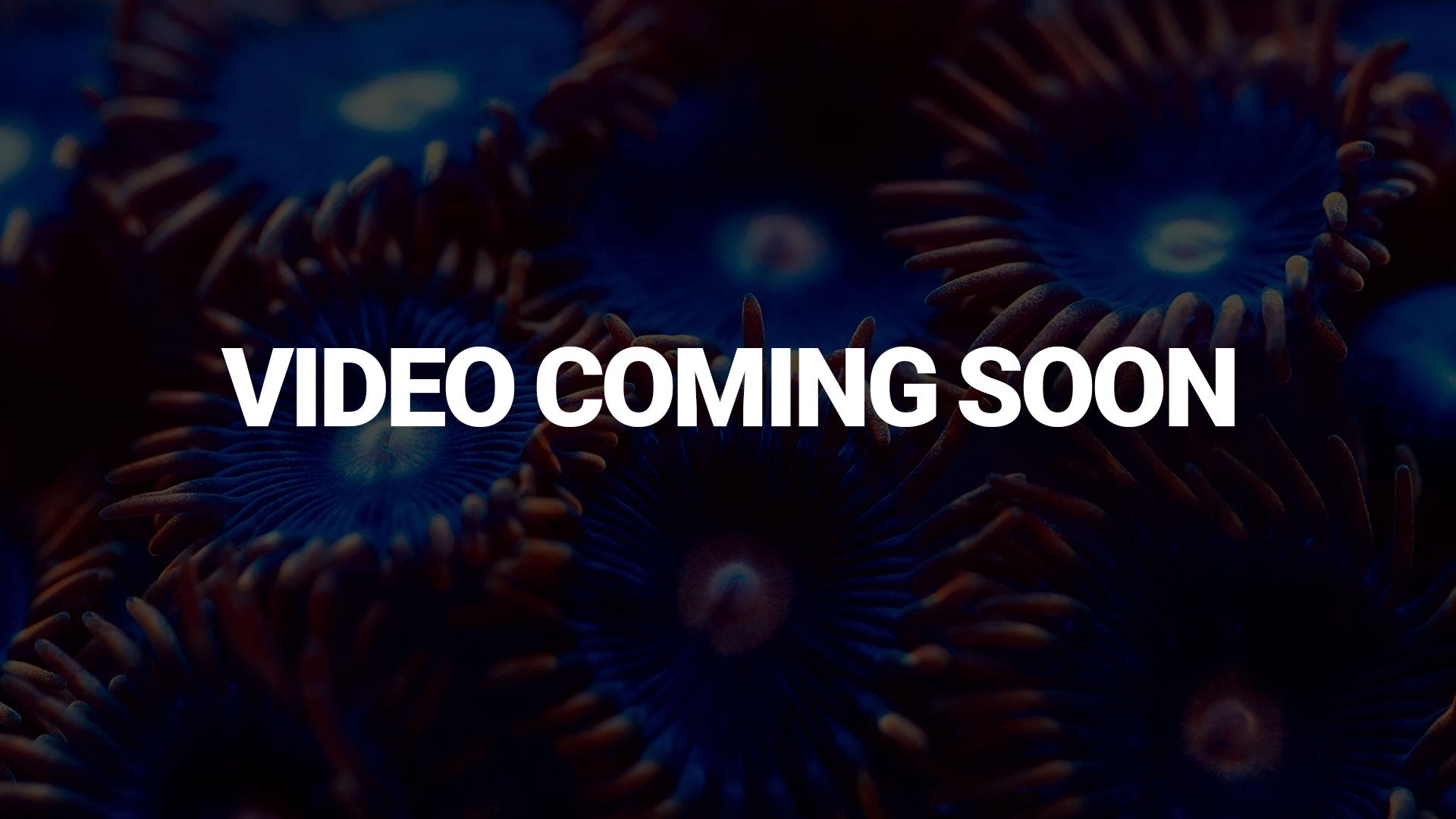
Step 8: Maintaining Water Chemistry & Quality with Water Changes
Water changes are essential in maintaining a healthy aquarium environment, primarily because they help to remove harmful toxins such as ammonia, nitrites, and nitrates, which accumulate over time from fish waste, uneaten food, and plant debris. These toxins can become lethal to fish and other aquatic organisms if allowed to build up to high levels.
Additionally, water changes replenish essential minerals and maintain stable water parameters, ensuring a balanced ecosystem for aquatic life. By diluting pollutants and refreshing the water's chemistry, regular water changes support the overall health, growth, and well-being of the aquarium inhabitants, preventing stress and disease outbreaks.
We recommend at least 10% water changes weekly, however 20% can be done bi-weekly.

